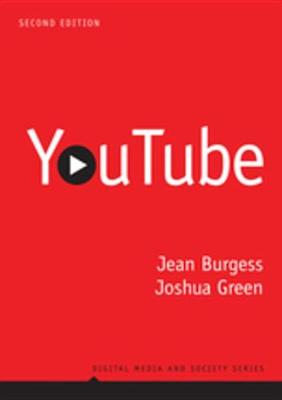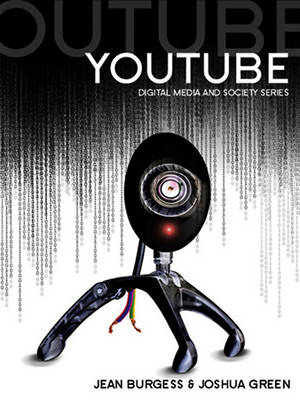Digital Media and Society
2 total works
Since launching as a website for everyday video-sharing in 2005, YouTube has become one of the world’s most powerful digital media platforms. Originally published in 2009 when YouTube was only four years old, this book was the first to systematically investigate its cultural impacts and politics, highlighting the productive tensions between its amateur community rhetoric and its commercial media logics.
Since then, YouTube has grown as a platform and matured as a company. Its business model is built on coordinating the interests of and extracting value from its content creators, audiences, advertisers and media partners, in a commercial setting where YouTube now competes with other powerful social media and streaming television platforms. Meanwhile, YouTube’s diverse communities of content creators, who developed the platform’s most distinctive cultural forms and genres, have strong ideas and interests of their own.
While preserving the original edition’s forensic analysis of YouTube’s early popular culture and uses, this fully revised and updated edition weaves fresh examples, updated theoretical perspectives and comparative historical insights throughout each of its six chapters. Burgess and Green show how, over its more than a decade of existence, YouTube’s dual logics of commerciality and community have persisted, generating new genres of popular culture, new professional identities and business models for the media industries, and giving rise to ongoing platform governance challenges.
The book is essential reading for anyone interested in the contemporary and future implications of digital media platforms and will be particularly valuable for students and scholars in media, communication and cultural studies.
Since then, YouTube has grown as a platform and matured as a company. Its business model is built on coordinating the interests of and extracting value from its content creators, audiences, advertisers and media partners, in a commercial setting where YouTube now competes with other powerful social media and streaming television platforms. Meanwhile, YouTube’s diverse communities of content creators, who developed the platform’s most distinctive cultural forms and genres, have strong ideas and interests of their own.
While preserving the original edition’s forensic analysis of YouTube’s early popular culture and uses, this fully revised and updated edition weaves fresh examples, updated theoretical perspectives and comparative historical insights throughout each of its six chapters. Burgess and Green show how, over its more than a decade of existence, YouTube’s dual logics of commerciality and community have persisted, generating new genres of popular culture, new professional identities and business models for the media industries, and giving rise to ongoing platform governance challenges.
The book is essential reading for anyone interested in the contemporary and future implications of digital media platforms and will be particularly valuable for students and scholars in media, communication and cultural studies.
Youtube - Online Video and Participatory Culture
by Jean Burgess, Joshua Green, Henry Jenkins, and John Hartley
Published 28 May 2009
YouTube is one of the most well-known and widely discussed sites of participatory media in the contemporary online environment, and it is the first genuinely mass-popular platform for user-created video. In this timely and comprehensive introduction to how YouTube is being used and why it matters, Burgess and Green discuss the ways that it relates to wider transformations in culture, society and the economy. The book critically examines the public debates surrounding the site, demonstrating how it is central to struggles for authority and control in the new media environment. Drawing on a range of theoretical sources and empirical research, the authors discuss how YouTube is being used by the media industries, by audiences and amateur producers, and by particular communities of interest, and the ways in which these uses challenge existing ideas about cultural 'production' and 'consumption'. Rich with both concrete examples and featuring specially commissioned chapters by Henry Jenkins and John Hartley, the book is essential reading for anyone interested in the contemporary and future implications of online media.
It will be particularly valuable for students and scholars in media, communication and cultural studies.
It will be particularly valuable for students and scholars in media, communication and cultural studies.

